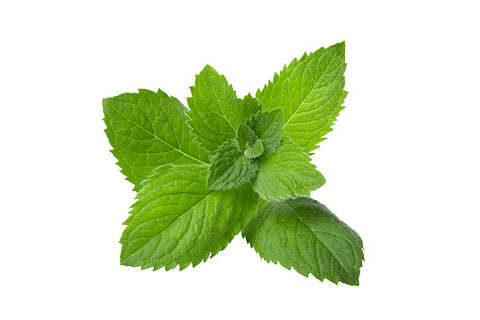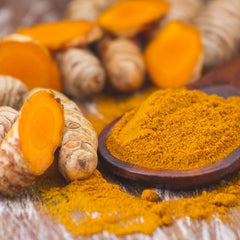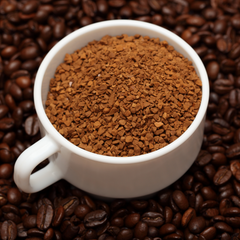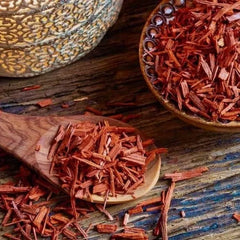What Does Lemon Balm Smell Like?
Click For Affordable Inspired Perfume Alternatives

Step into the aromatic garden of fragrances, where nature's treasures weave a symphony of scents. Among these botanical wonders is lemon balm, a herb celebrated not only for its medicinal properties but also for its delightful fragrance. In this olfactory exploration, we delve into the question: What does lemon balm smell like?
What Does Lemon Balm Smell Like?
Factors That Affect The Smell Of Lemon Balm
Lemon balm (Melissa officinalis) is a fragrant herb belonging to the mint family. The smell of lemon balm can be influenced by various factors, including:
-
Growing Conditions: The environment in which lemon balm is cultivated can impact its aroma. Factors such as soil quality, sunlight exposure, and climate can affect the concentration of essential oils responsible for the characteristic lemon scent.
-
Harvesting Time: The stage at which lemon balm is harvested can influence its fragrance. Generally, harvesting the leaves before the plant flowers can result in a more potent lemon scent. This is because essential oil content tends to be higher before flowering.
-
Drying Process: The method used to dry lemon balm leaves can affect their fragrance. Proper drying techniques, such as air drying in a shaded area, can help preserve the essential oils and maintain the characteristic lemon aroma.
-
Storage Conditions: How lemon balm is stored after harvesting and drying can impact its scent. Storing the herb in a cool, dark place in airtight containers helps retain its aromatic properties. Exposure to light, heat, and air can lead to the loss of essential oils and a decrease in fragrance.
-
Varietal Differences: Different varieties or cultivars of lemon balm may have subtle variations in fragrance. Some varieties may have a stronger lemon scent, while others may be milder.
-
Soil Composition: The composition of the soil in which lemon balm is grown can influence the plant's overall health and the quality of its essential oils, affecting the intensity of the lemon fragrance.
-
Plant Part Used: The specific part of the lemon balm plant used can impact the aroma. While the leaves are the primary source of the lemon scent, other parts, such as the flowers, may contribute additional notes.
-
Age of the Herb: Like many herbs, the age of the lemon balm can affect its aromatic profile. Freshly harvested lemon balm is likely to have a more vibrant scent than older or stale herb.
It's important to note that individual preferences for the fragrance of lemon balm can vary. Some people may prefer the lemony aroma of freshly harvested leaves, while others may enjoy the subtler fragrance of dried lemon balm. Choosing high-quality, well-preserved lemon balm and using proper storage practices can help maximize its aromatic properties.
What To Look For When Buying Lemon Balm
If you're looking to purchase pure lemon balm, consider the following tips:
-
Ingredients List:
- Pure lemon balm products should list "Melissa officinalis" as the main or only ingredient. Be cautious of products with additional fillers or artificial additives.
-
Certifications:
- Look for certifications such as "Organic" or "Non-GMO," which can indicate that the product meets specific quality standards. These certifications are especially important if you want a product free from pesticides or genetically modified organisms.
-
Packaging:
- Similar to argan oil, the quality of lemon balm can be affected by light and air. Choose products packaged in dark, airtight containers to preserve the herb's freshness.
-
Color and Aroma:
- Lemon balm leaves should have a vibrant green color. When crushed, the leaves release a lemony aroma. If the color is dull or the aroma is weak, the product may not be of the highest quality.
-
Texture:
- Lemon balm leaves should be crisp and free of mold or discoloration. Avoid products with signs of spoilage.
Where to Find Reputable Sources:
-
Health Food Stores:
- Local health food stores or specialty stores that carry herbal products may have pure lemon balm. These stores often focus on natural and organic products.
-
Online Retailers:
- Platforms like Amazon, iHerb, and specialty herb shops online offer a variety of lemon balm products. Read product descriptions and customer reviews to gauge the quality and authenticity.
-
Herbal Apothecaries:
- Stores specializing in herbs and natural remedies are likely to carry high-quality lemon balm. Staff at these stores may also provide information on the sourcing and quality of their products.
-
Certified Herbal Brands:
- Some herbal brands focus on providing high-quality, pure products. Look for brands that emphasize transparency, sourcing, and adherence to quality standards.
-
Local Farmers' Markets or Specialty Herb Shops:
- If available, local farmers' markets or specialty herb shops may carry fresh or dried lemon balm. This allows you to inspect the product visually and sometimes even smell it before purchasing.
-
Word of Mouth:
- Seek recommendations from individuals who use or are knowledgeable about herbal products. Personal experiences can guide you to reputable sources.
Always check product labels, read reviews, and buy from reputable sources to ensure that you are getting pure lemon balm without unnecessary additives. Additionally, consider your specific needs, whether it be for culinary use, herbal teas, or aromatherapy, when choosing the form of lemon balm that best suits your preferences.
20 Questions and Answers about Lemon Balm:
-
Is lemon balm commonly used in perfumery?
- Yes, the invigorating scent of lemon balm makes it a favored choice in perfumery, often used to add a bright and fresh element.
-
Can lemon balm be a dominant note in perfumes?
- Lemon balm is often used as a top note in perfumes, contributing its lively and citrusy character to the fragrance.
-
Does the scent of lemon balm vary between fresh and dried leaves?
- The fragrance is more pronounced in fresh lemon balm leaves, with the dried version retaining a slightly muted but still pleasant aroma.
-
Can lemon balm be blended with other citrus notes in perfumery?
- Absolutely, lemon balm blends seamlessly with other citrus notes, enhancing the overall freshness of a fragrance.
-
Does lemon balm's scent have calming properties?
- Yes, the aroma of lemon balm is associated with calming and stress-relieving effects, making it a popular choice in aromatherapy.
-
Is lemon balm fragrance gender-neutral?
- Lemon balm's bright and unisex fragrance makes it suitable for both men's and women's perfumes.
-
Can lemon balm be used as a single-note fragrance?
- Some perfumers appreciate the simplicity of lemon balm as a standalone note, capturing the essence of its vibrant citrus character.
-
Is lemon balm used in natural perfumery?
- Yes, the natural and herbal profile of lemon balm aligns well with the principles of natural and organic perfumery.
-
Does the climate affect the scent of lemon balm?
- Lemon balm tends to thrive in sunny climates, and the intensity of its fragrance can be influenced by sunlight and temperature.
-
Can lemon balm be used in scented candles?
- Yes, the uplifting scent of lemon balm can be infused into candles, creating a fresh and invigorating ambiance.
-
Are there cultural associations with the scent of lemon balm?
- Lemon balm has been historically associated with healing properties in various cultures, and its fragrance is often linked to rejuvenation.
-
Can lemon balm be used in culinary perfumery?
- Lemon balm's citrusy and herbal notes make it a delightful addition to culinary creations, adding a refreshing touch to dishes.
-
Does lemon balm's scent change with the plant's maturity?
- The fragrance of lemon balm is most potent when the plant is in full bloom, with a burst of citrusy freshness.
-
Is lemon balm fragrance long-lasting in perfumes?
- While a top note, lemon balm's fragrance can linger, especially when complemented by other long-lasting base notes in a perfume.
-
Can lemon balm be used in room sprays for its fragrance?
- Yes, lemon balm's invigorating scent makes it a popular choice for room sprays and air fresheners.
-
Does lemon balm's fragrance have insect-repelling properties?
- Lemon balm is known for its mild insect-repelling properties, making it a natural choice for outdoor spaces.
-
Can lemon balm be blended with floral notes in perfumery?
- Yes, the citrusy brightness of lemon balm can complement floral notes, creating a well-balanced and uplifting fragrance.
-
Are there any known allergies to the fragrance of lemon balm?
- Allergic reactions to lemon balm's fragrance are rare, but individuals with sensitivities to herbs should exercise caution.
-
Can lemon balm's scent be influenced by soil composition?
- The quality of the soil can impact the potency of lemon balm's fragrance, with well-drained and fertile soil enhancing its aromatic profile.
-
Is lemon balm used in mainstream or niche perfumery?
- Lemon balm finds its place in both mainstream and niche perfumery, appreciated for its versatile and crowd-pleasing fragrance.
In Conclusion:
Lemon balm, with its effervescent citrusy charm, invites us to experience the joy of nature's aromatic bounty. Its refreshing and herbal fragrance, reminiscent of sunlit gardens, makes it a cherished ingredient in perfumery and aromatherapy alike. So, the next time you encounter the uplifting scent of lemon balm, let it transport you to a world of citrusy bliss, where the essence of nature's beauty unfolds in every fragrant breath.
Buy Perfumes - Best Online Retailers
Click For Affordable Inspired Perfume Alternatives
Click For The Best Niche Perfumes & Decants
Pheromone Perfumes - Confidence, Attraction & Appeal - Click For More
Home Fragrances & Candle Warmers - Click To Scent Up Your Spaces Today!



